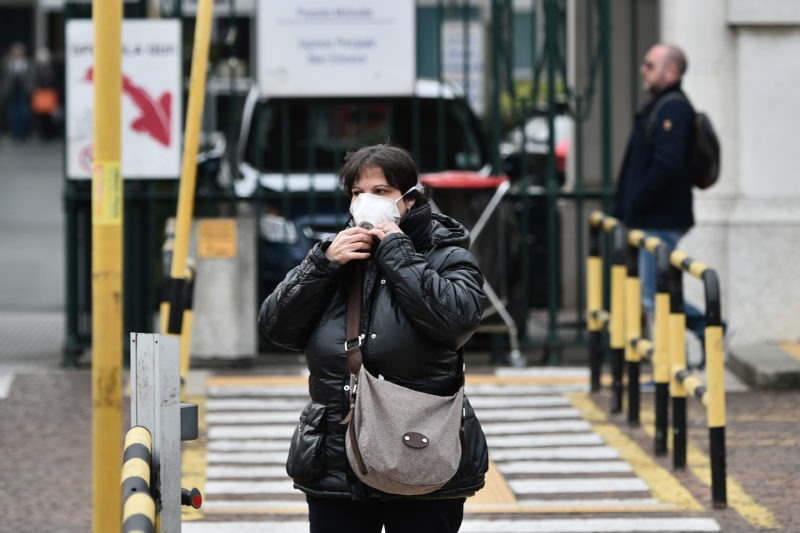Italy says lockdown aimed at saving economy from virus
The lockdown affects around 40 percent of Italy’s output (Marco BERTORELLO )
Rome (AFP) – Italy said Monday its month-long lockdown of northern regions responsible for 40 percent of overall production was designed to save the rest of the economy from falling victim to the new coronavirus.
But the Italian Stock Exchange — propelled by broader declines linked to the oil market’s collapse — took little comfort from the government’s quarantine measures.
Stocks were down more than 10 percent in mid-afternoon trade and the shares of Italy’s Unicredit banking giant were down almost 15 percent.
The epidemic has managed to wipe out almost the entire 28 percent gain the Milan exchanged built up last year.
Italian leaders had been watching in anguish as COVID-19 kept killing dozens of people daily in areas around the tourist hotspot Venice and the financial capital Milan.
The toll shot up by 133 on Sunday to 366 — briefly the most outside China itself.
The government had by then decided to ring-fence more than 15 million people who live in the industrial heartland of Lombardy and surrounding areas until April 3.
Italy’s economy and finance ministry openly conceded Monday that an effective quarantine of the northern quarter of the population would deliver a short-term shock.
But it also argued that this was the bitter pill Italy had to swallow for its economy to survive.
“A temporary downturn in some sectors or areas of the country is preferable to a longer crisis that could spread to the whole economy via demand and supply effects,” the ministry said a statement.
Italian Prime Minister Giuseppe Conte gloomily cited the wartime fireside chats of Britain’s Winston Churchill as evidence that great nations persevere when the going gets tough.
“These days, I have been thinking about the old speeches of Churchill — it is our darkest hour but we will make it,” Conte told La Repubblica newspaper.
Churchill coined the “darkest hour” phrase to describe the moment during World War II when Britain had no allies and had to fight on alone against the Nazis.
– Saving jobs –
Italy is preparing a 7.5-billion-euro ($8.6-billion) package aimed at helping out the devastated tourism industry and other sectors especially hard-hit by disruptions in global supply chains.
“Support measures will be adequate to the difficult circumstances and aimed at preventing lasting damage to the supply side of the Italian economy and permanent employment losses,” the economy and finance ministry said.
Yet some analysts doubt that cash injections can help an economy suffering from the consequences of a global epidemic.
“The world is facing a medical emergency that monetary and fiscal policy cannot fix,” Berenberg Bank economist Holger Schmieding wrote.
Schmieding also questioned whether the Italian lockdown — seemingly less restrictive and less punitively enforced than the one China imposed on Wuhan — would actually work.
“With luck, the Italian response can at least help to slow down the advance of the virus,” said Schmieding.
“However, beyond the direct impact on activity, the Italian measures… are likely to weigh significantly further on confidence near-term.”
Berenberg revised down its second quarter forecast for Italy to a decline of 1.0 percent of gross domestic product (GDP).
The economy and finance ministry admitted that its measures will “particularly impact sectors tied to transport, lodging, food and drink, entertainment and social life.”
The government is shutting down bars and museums nationwide in an effort to limit crowds.
Everything from the Colosseum and Vatican Museums to Mount Vesuvius near Naples are closed for the coming four weeks.
The tourism sector’s 13 percent contribution to Italy’s GDP is expected to shrivel.
But the economic and finance ministry looked for the silver lining in its efforts to calm the markets.
“It should be emphasised that the core sectors of the economy and the public administration will remain open for business even in the restricted areas of the country,” it said.
Disclaimer: Validity of the above story is for 7 Days from original date of publishing. Source: AFP.


